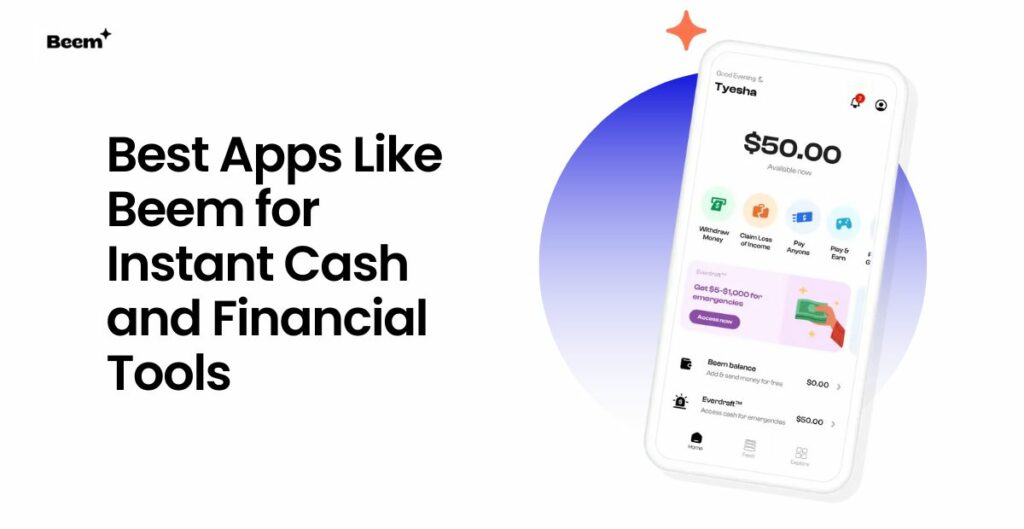We live in a world where convenience is king — groceries delivered to your door, rides summoned with a tap, and bills paid instantly online. But all that ease comes at a hidden cost. These little extra charges — service fees, delivery fees, automatic markups — add up fast. Some call it the lazy tax: the premium you pay for not taking the slightly more challenging route. In this article, we’ll show you how to stop paying lazy tax, recognize where your money is slipping away, and make smarter choices that protect your wallet without complicating your life.
What Is the Lazy Tax and Why Are You Paying It?
The lazy tax isn’t something you’ll see on a receipt — but you’re probably paying it more often than you think.
It’s the extra money you spend when you choose convenience fees over planning, speed over strategy, or procrastination over preparation. It’s not about being careless — it’s what happens when life gets busy and you’re just trying to get through the day.
Real-Life Examples of the Lazy Tax:
- $3 ATM fees because you didn’t find a no-fee machine
- $8 delivery fees + tips for takeout you ordered because the fridge was empty
- $35 late payment charges for a bill you meant to pay last week
- $20+ in service fees when you bought concert tickets last minute online
- $15 in overdraft fees because you didn’t transfer money in time
- Subscription renewals for things you forgot to cancel months ago
These little charges seem harmless but quietly drain your bank account over time.
For example, if you pay even $5 extra a few times a week in lazy tax, you’ll lose over $1,000 yearly to avoidable costs.
Why It Matters
Most people don’t overspend because they lack discipline—they overspend because they’re overwhelmed, overcommitted, or unaware.
The lazy tax thrives in autopilot mode. But once you recognize it, you can start to take back control — without needing a complete financial overhaul.
Why Convenience Fees Comes at a Bigger Cost Than You Think
Convenience fees feels harmless — even smart — in the moment. You’re tired, busy, or stressed, and spending a few extra dollars to save time feels like a win. But those tiny, everyday decisions come with hidden price tags that quietly build over time.
Small Charges That Sneak Into Daily Life
We rarely think twice about the following:
- A $3 coffee on the way to work
- A $5 delivery fee for dinner
- A $2 ATM fee when we’re in a rush
- A $6 rideshare instead of taking the bus
- A $4 add-on or upsell at checkout
Individually, they seem insignificant. But let’s do the math:
$3/day x 365 days = $1,095/year
That’s a weekend getaway, an emergency fund, or 3 months of groceries — gone in tiny bites.
Emotional Spending Disguised as “Saving Time”
Here’s where it gets trickier: our brains are great at justifying convenience.
- “I deserve this — it’s just a few bucks.”
- “It saves me time, so it’s worth it.”
- “I’ll start budgeting tomorrow.”
This kind of emotional spending feels rewarding in the short term, but it’s often just stress relief in disguise. The problem? These small decisions become habits; soon, we’re spending hundreds — even thousands — without realizing it.
Read related blogs: Can I Gift My Children Money Tax-Free?
Where the Lazy Tax Hides in Plain Sight
The lazy tax doesn’t always show up with a hefty price tag—the small, silent leaks drain your money over time. It often hides in the background of your everyday routines, disguised as “normal” spending. Once you know where to look, stopping it is much easier.
Automatic renewals, subscriptions, and delivery fees
Automatic Renewals & Subscriptions
- Forgetting to cancel that “free trial” or gym membership you never use? That’s a lazy tax.
- Tip: Set calendar reminders before free trials end. Use apps like Beem or Rocket Money to monitor recurring charges.
Delivery & Convenience Fees
- Ordering groceries, takeout, or even small items online often comes with hidden service, delivery, and tip fees.
- Tip: Batch your orders, use pickup when possible, or check if store apps offer discounts.
Hidden Online Service Fees
- Buying event tickets or booking travel online? Many platforms sneak in “processing” or “service” fees at checkout.
- Tip: Always compare prices on the official site and watch for extra charges before clicking “confirm.”
Paying bills late or using payday loans unnecessarily
Paying Bills Late
- Missing due dates leads to penalties, interest, and sometimes even hits to your credit.
- Tip: Use a bill calendar or set autopay (only if you track your account balance closely).
Using Payday Loans or Overdrafts Unnecessarily
- High-interest payday loans or frequent overdrafts can trap you in a debt cycle.
- Tip: Build a $1/day emergency fund using an app like Beem — it adds up faster than you think.
Impulse Buying Due to Poor Planning
- Running out of essentials or last-minute gifting often leads to overpriced purchases.
- Tip: Use a running shopping list app like AnyList to stay stocked and avoid premium pricing.
How to Break the Cycle and Keep Your Cash
Breaking the “lazy tax” cycle doesn’t require a financial overhaul — just a few mindful changes and innovative tools. The key is to get ahead of your spending instead of reacting to it. When you plan a little, you save a lot.
Review Auto-Payments and Cancel What You Don’t Use
It’s easy to forget what you’re subscribed to — until your bank account reminds you. From streaming platforms to fitness apps and “free trials” that quietly became paid plans, auto-payments can quietly eat up your cash.
Here’s how to take control:
- Review your bank or credit card statements once a month.
- Use tools like Beem to flag recurring payments.
- You can cancel anything you haven’t used in the past 30 days—if you need it again, you can always resubscribe.
Plan to Avoid Rush Fees and Last-Minute Spending
Most impulse spending happens because you’re unprepared. Rushing to buy food, gifts, or supplies at the last minute often leads to convenience markups or unnecessary extras.
Try these practical strategies:
- Use a bill calendar to avoid late fees — a simple reminder on your phone works, or use an app like Beem or YNAB (You Need A Budget).
- Plan your week’s meals and groceries using apps like AnyList or Mealime so that you won’t order food in a panic.
- Batch errands and shopping trips to avoid last-minute dashes (and impulse buys).
See Also: Do Homeless People Pay Taxes? A Comprehensive Guide in 2025
When to Choose Convenience Fees — And When to Avoid It
Situational Spending vs. Habitual Laziness
Convenience fees isn’t the enemy — but unconscious spending is.
Ordering takeout after a 12-hour workday? That’s situational. Grabbing coffee every morning because you forgot to prep? That might be a habit worth examining.
There’s a fine line between treating yourself when needed and defaulting to convenience fees out of routine. One saves your sanity, while the other slowly drains your wallet without you even realizing it.
Time-Saving vs. Money-Wasting
Here’s the mindset shift: spend consciously, not automatically. Ask yourself,
“Am I buying back my time — or just avoiding effort?”
Try this rule of thumb:
- Only pay for convenience if it saves at least 30 minutes or significantly reduces stress.
- That could mean paying for grocery delivery when you’re swamped with work but skipping it on a slow Sunday. It’s not about guilt — it’s about choice.
Who Pays the Lazy Tax Most — and How to Beat It
The lazy tax isn’t about being lazy — it’s what you pay when life gets so busy or overwhelming that you default to the easiest (and often priciest) option. Think food delivery, late fees, forgotten subscriptions, and overpriced convenience items. When running on fumes, pausing and making the “smart” money choice is hard.
Certain groups are especially vulnerable — not because they’re careless, but because their lives demand so much time, energy, and mental load.
Students: Always on the Move, Rarely on a Budget
Juggling classes, part-time jobs, and social lives leaves little room for financial planning. Late-night food delivery, last-minute rideshares, and overdraft fees are common traps.
Tips for students:
- Use Beem or another micro-saving app to stash away $1/day automatically — even small wins add up.
- Set up recurring calendar reminders for bills or deadlines to avoid fees.
- Keep simple grab-and-go snacks (like trail mix or instant noodles) to dodge late-night takeout.
Gig Workers: Time-poor, Energy-Depleted, Under Pressure
With unpredictable hours and income, gig workers often pay for convenience out of necessity — fast food between jobs, fuel costs from unplanned routes, or lack of time to track expenses.
Tips for gig workers:
- Use Beem to automatically set aside even $0.50 to $1 daily, creating a buffer for off weeks.
- Batch errands and routes to cut back on fuel and time waste.
- Track your weekly earnings and expenses in a simple spreadsheet or app — it’ll help spot patterns (and leaks).
Final Thoughts on Stop Paying Lazy Tax
Convenience isn’t the enemy — unconscious spending is.
There’s nothing wrong with paying for ease, speed, or flexibility. Sometimes, it’s precisely what you need. But when those choices become automatic, unexamined habits, the lazy tax creeps in — quietly draining your money in the background. The good news? You don’t have to give up comfort to save money. Bring a little awareness to the table.
Small mindset shifts like:
- Asking why you’re spending
- Planning when you can
- Automating your savings (like with Beem)
- can unlock big wins — without adding stress to your day.
Remember that you don’t pay more just because it’s easier not to think.
Think of it like this: every time you pause and choose with intention, you’re not just saving money but taking control. And that adds up to absolute freedom.















































